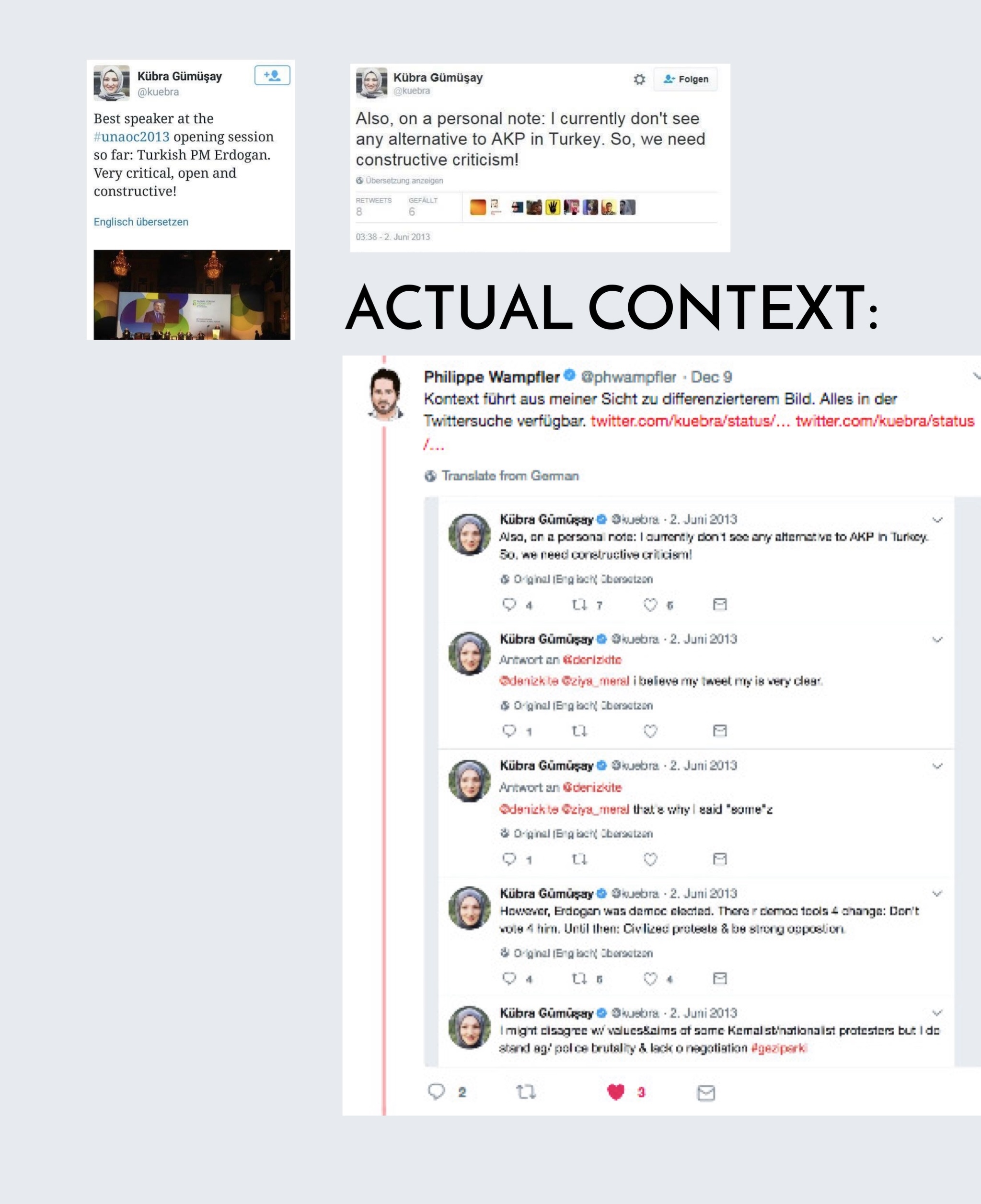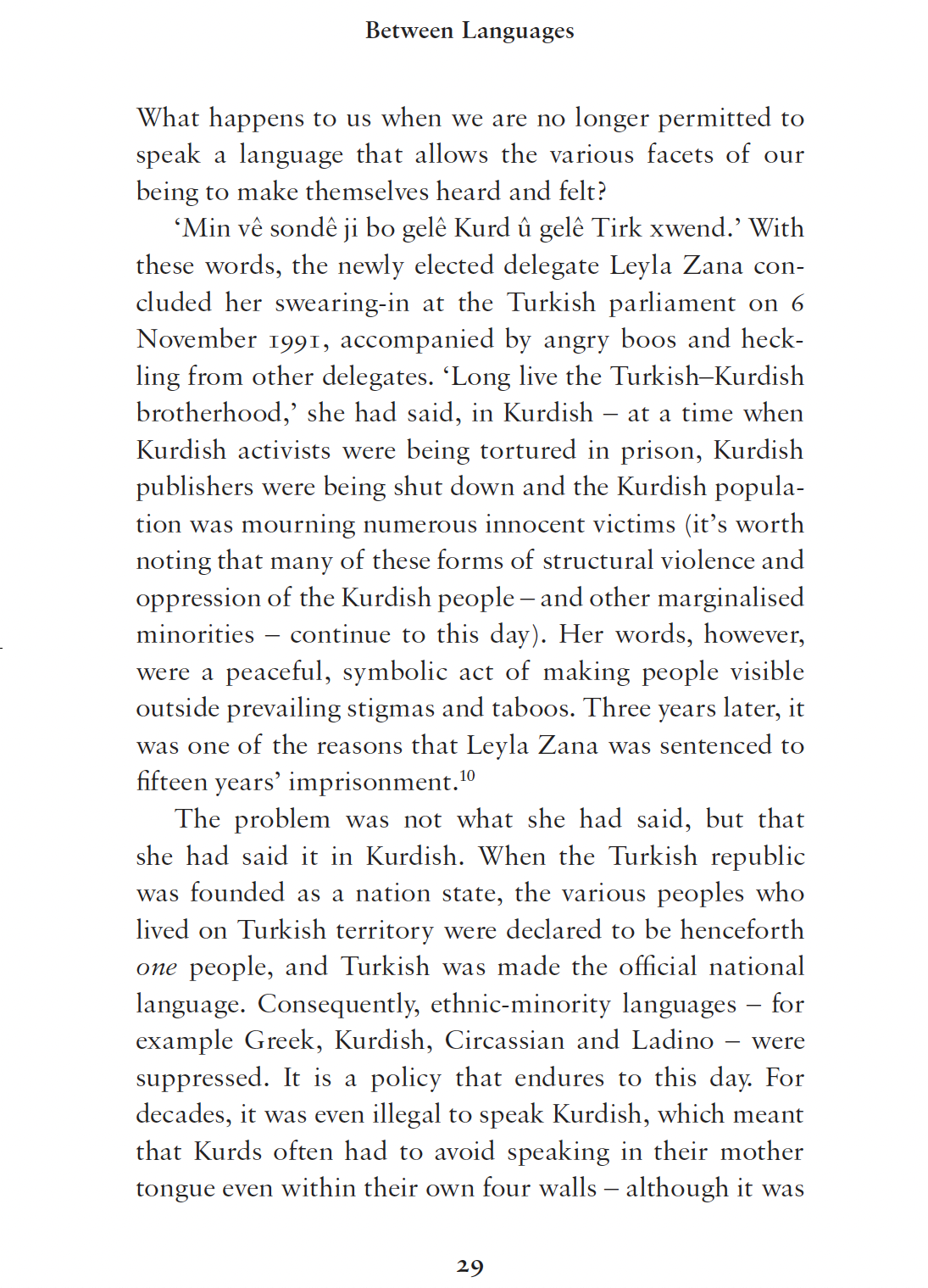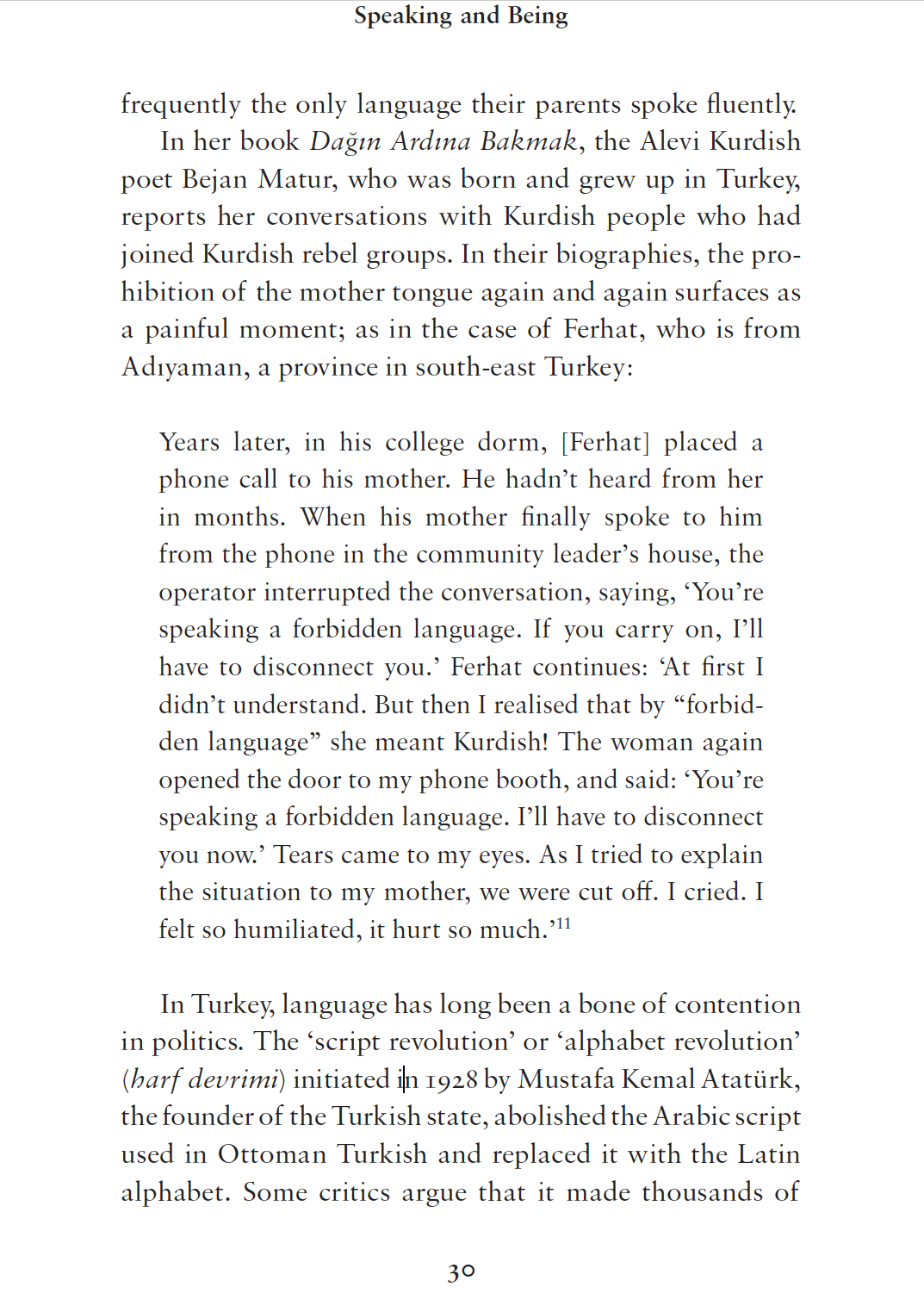FAQ
“If I didn’t define myself for myself,
I would be crunched
into other people’s fantasies for me
and eaten alive.”
– AUDRE LORDE

INTRO
The world is more complex than the categories in which we used to think. I therefore understand that some people might feel irritated or even agitated when they are not able to put me in one of their boxes. Because some cannot or do not want to associate visible religiosity with emancipation and a commitment for justice for all, a pluralistic society and freedom of oppression. Or others who have a fundamental mistrust for religions or religious people. However given the countless atrocities committed in the name of my religion, I do understand these sentiments. Although these accusations are extremely hurtful to me, I do not wish to judge those who suffered at the hands of those who I am being seen as a representative. Instead, I stand in solidarity and deep sympathy with those who seek justice.
I know that for some I will remain an object of their projections. But I am also aware that this has more to do with what they project on me than me or my actual work. To them, no evidence is enough, let alone can change their minds. They will continue to see what they want to see.
Nevertheless, I am confident that this page will fully and transparently refute any accusation and bring clarification. Knowing, however, that raising one’s own awareness and especially understanding one’s own complicity in systems of oppression is an ongoing, never-ending process. And I am grateful to you, my loved ones. My friends, companions, teachers, fellow students of this life. Thank you, always.
1.
POSITION ON
ALEVITES & KURDS
I was accused of being silent about oppressed minorities in Turkey. That is just wrong. On the contrary: In my book “Sprache und Sein” (2020) (English: “Speaking and Being”, 2022 – screenshots of the English translation can be found here on the right) I addressed the oppression of Kurds and the Kurdish language in Turkey, since I not only consider the racism in Germany worth fighting against, but anywhere. The racism and discrimination that Kurds, Yazidis, Jews and other minorities in Turkey experience is atrocious. There is too much trauma, death, violence and systemic oppression. To this day, even outside of Turkey, in Turkish communities abroad, e.g. in Germany, they are subjected to racism and exclusion, marginalization and discrimination.
A few additional points I would like to address here:
The accusation was also based on a Turkish poet that I mentioned [1] in my book “Sprache und Sein”. I was sadly not familiar with his anti-Alevi and antisemitic remarks that are absolutely incompatible with my convictions. As soon as those were brought to my attention, I immediately removed his name from my book (already for the 2nd edition, going into print shortly after the release date, early February), addressed my mistake publicly and apologised (screenshot).
The claim has also been based on my alleged silence on the Turkish military offensive in 2019. That’s not true either, see here.
I have – and will not – stop opposing racism and oppression of marginalised people whether within the society I live in, my own faith group or elsewhere. Here, in 2018, I wrote:
“This also applies to Turkey: The words you use, do not stand without effect. If you target people based on their faith, language, ethnicity, belief, mezhep or sexuality, you are also responsible for those who act on these words.
The moment hate speech is normalised, we have lost anyways.”
Bunlar Türkiye için de geçerli:
Söylediğiniz kelimeler etkisiz kalmıyor.
Insanları din, dil, ırk, inanç, mezhep veya cinsiyetlerinden dolayı hedef gösterdiğiniz vakit, o sözlere itaat edenlerden sizler de mesulsunuz.
Nefret söylemlerin normalleştiği andan beri kaybettik zaten. https://t.co/LgjgpUbeAx
— Kübra Gümüşay (@kuebra) March 18, 2019
[1] This passage of the book dealt with the question, how we would have assessed multilingualism, if we had discussed authors from different language areas as part of our formal school education. “How would my bilingual classmates – without a prestige language – have developed, if we had, in addition to Goethe and Schiller, read Emine Sevgi Özdamar, Nazik al-Mala’ika, Maya Angelou, Necip Fazıl Kısakürek, Hafes, Audre Lorde, Ellen Kuzwayo or Noémi de Sousa?” I have neither quoted Kisakürek nor discussed him as a person, except that I had mentioned him amongst a number of authors.
2.
POSITION ON
AKP
The accusation of me supporting the AKP or Erdoğan is false and has no basis whatsoever. A quick glance at my multiple texts, essays, comments and statements on the Turkish government that are publicly available should suffice.
Overall I wrote four articles on current politics in Turkey. These are as follows:
1- An article on Erdoğan’s misogynist rhetoric.
2- A column about a sex worker in Istanbul from the LGBT-community.
3- An article on the media landscape and the social polarisation and
4- In a column at NDR I criticised the way many German-Turks have reacted to the coup attempt in 2016 and advocated for more solidarity with minorities in Turkey. Here is an excerpt:
“Instead of just importing, we could at least try to export our diverse experiences to Turkey. The demands and expectations that we as minorities ask for in the society we live in, should also apply for Turkey: that a society is only as free and fair as it is free and fair for the weakest and most oppressed. And that it is the job of the majority to observe and protect the rights of the minorities. We could perhaps even become our own, sound, diverse and at times divided voice.”
The accusation of supporting the AKP was based on two tweets from 2013 (see below). It should be mentioned here that up until 2013, many writers, activists, journalists and politicians were predominantly hopeful regarding the developments in Turkey. As was I. Being disappointed, I, in 2013, then criticised the government in multiple tweets, defended the Gezi protestors and started a petition in their support. Here is just a sample of comments and tweets from back in 2013, as well as additional information on the petition under the tab “tweets”.
TWEETS
During the Gezi protests (2013) I published a petition along with some friends: İtidal çağrısı (Call for moderation). In that we asked the government to sympathise more with the protestors and called for moderation and deliberateness.
Imzala, Türkiye: “Sn Başbakan’a, Hükümete ve Endişe İçindeki Tüm Yurttaşlara İtidal Çağrısı:” https://t.co/GnKQHxaqp2 #geziparki
— Kübra Gümüşay (@kuebra) June 4, 2013
@HoeperH fyi: Ich helfe seit Tagen bei der Vorbereitung einer Petition und Kampagne, die soeben gestartet ist.
— Kübra Gümüşay (@kuebra) June 4, 2013
Already, back in June 2013, I fought back against the misappropriation by others and criticised the notion that wearing a hijab makes one a supporter of the Turkish government. Unfortunately, a notion that prevails to this day.
“Non-ideological activists” expecting u to b blindly & uncritically following Turkish gov policy simply bc/ u happen to b a hijabi Muslim.
— Kübra Gümüşay (@kuebra) June 3, 2013
Ignoring dozens of critical tweets I wrote on the AKP, these two tweets are used as basis for the accusations.

The second tweet is taken out of context. It was tweeted within the context of a discussion (see below), in which I at the time didn’t believe the opposition parties were fit for office / governable and suggested, to try to criticise the government constructively first while at the same time strengthening the opposition parties.
Additionally, please find some of the many critical tweets and comments I wrote in 2013 below:
#AcilDemokrasi’ye ihtiyaç var – @cuneytozdemir‘in yazısında paylaştığı eleşitiriler mühim, kulak verilsin. Lütfen. http://t.co/OFQwTHvRyb
— Kübra Gümüşay (@kuebra) June 12, 2013
Exactly what T needs! “@zeynep (…)but I feel this has potential to be a turning point in how the opposition sees itself in T #occupygezi”
— Kübra Gümüşay (@kuebra) June 14, 2013
@sapko83 @hkubra Önyargiyi yenmek önyargili olanin görevidr. Caddede “ötekiyle” konussaniz sizi mutlu eden cok insan kesfedersiniz, dedim :)
— Kübra Gümüşay (@kuebra) June 13, 2013
3 police officers who attacked protestors now suspended. http://t.co/P2nGnHqlds Hope investigation on police violence continues #geziparki
— Kübra Gümüşay (@kuebra) June 12, 2013
Just like I haven’t forgotten the sorrows of the past, some won’t forget sorrows of today. Think about tmrrw, act for the future. #geziparki
— Kübra Gümüşay (@kuebra) June 12, 2013
@MehmetCCAA Unutmadik. Sadece yanlis dersler aldik. Zulme ugrayanin dersi, hic kimseye hicbir sekilde azda olsun zulmetmemek olmaliydi.
— Kübra Gümüşay (@kuebra) June 12, 2013
@bisint ich rufe die regierung auf, die wut der protestierenden zu verstehen und auch an morgen zu denken.
— Kübra Gümüşay (@kuebra) June 12, 2013
Sanki yarin bir arada yasamayacakmis, yasamak zorunda kalmayacakmis gibi kufur yagdiriyorlar insanlar birbirine… Yarinlarda utanmayasiniz?
— Kübra Gümüşay (@kuebra) June 12, 2013
Büyük-Dedemin gizlice gece ormanda Kuran ögrettigi, annemin üni’sine gidemedigi günleri unutmadigim gibi, birileri bu günleri unutmayacak. +
— Kübra Gümüşay (@kuebra) June 12, 2013
+ Yarinimizi birlikte kuralim. Beslemeyelim kin ve nefreti. Her adimimizda, sözümüzde, yarinimizi düsünelim. Birlik gelecegimizi…
— Kübra Gümüşay (@kuebra) June 12, 2013
Istanbul’da olsaydım, polisin önüne geçip ‘yapmayın, atmayın şu gazları’ diye yalvarır, arkadaşları kendi ellerimle tutup uzaklaştırırdım.
— Kübra Gümüşay (@kuebra) June 15, 2013
Bir gün Rüzgar Güneş’le bahse girmiş: “Bak şu aşağıdaki adamı görüyor musun? Gör bak! Onun ceketini çıkaracağım!” #geziparki
— Kübra Gümüşay (@kuebra) June 15, 2013
My photographer friend Claudius Schulze took amazing pictures of the resting & sleeping “Capulcus” at #geziparki http://t.co/4UJLgCCynl
— Kübra Gümüşay (@kuebra) June 14, 2013
Örnek bir yazı. Bizi samimi ve dürüst özeleştiriler bir araya getirecektir – her kesimden gelirse elbette. http://t.co/pL1jgJa0Mm #geziparki
— Kübra Gümüşay (@kuebra) June 11, 2013
“Applaud, applaud! Police is leaving! But: Don’t throw any stones, don’t leave the stairs.” #GeziParki protestors amongst themselves at NTV.
— Kübra Gümüşay (@kuebra) June 11, 2013
NTV Turkey reports live: #GeziParki protesters are calming down each other, calling not to throw any stones at the police.
— Kübra Gümüşay (@kuebra) June 11, 2013
#GeziParki protestors have started to collect provocateurs and hand them to the police via @gencserkan Via @ekizilkaya
— Kübra Gümüşay (@kuebra) June 11, 2013
Who ever reigns #Turkey, there is always a need for a strong opposition & strong civil society – for a healthy democracy.
— Kübra Gümüşay (@kuebra) June 2, 2013
Reading inhuman, hateful comments some people are writing in the name of #geziparki protesters, I feel disgusted. Don’t hijack the protest.
— Kübra Gümüşay (@kuebra) June 2, 2013
Wrongs/mistakes have been done. Our stance ag/ these unites ppl of all backgrounds. Don’t do wrong by abusing it for ur ideology #geziparki
— Kübra Gümüşay (@kuebra) June 2, 2013
Who ever reigns #Turkey, there is always a need for a strong opposition & strong civil society – for a healthy democracy.
— Kübra Gümüşay (@kuebra) June 2, 2013
I might disagree w/ values&aims of some Kemalist/nationalist protesters but I do stand ag/ police brutality & lack o negotiation #geziparki
— Kübra Gümüşay (@kuebra) June 2, 2013
An important piece by @alparslannas: “Gezi Park: Between Carnival and Revolution” – http://t.co/y8q4aSDlGV
— Kübra Gümüşay (@kuebra) June 27, 2013
@Flxdax Sidenote: Ich finde ein richtig toller & großartiger Oppositionspolitiker ist Sirri Süreyya Önder. Den könnt ich ständig beklatschen
— Kübra Gümüşay (@kuebra) July 11, 2013
Sirri Süreyya Önder’den “Bir Ermeni, Kürt ve Türk birlikte erik çalarken…” https://t.co/ncbZtlgaJa #böldürmeyeceksin
— Kübra Gümüşay (@kuebra) June 12, 2013

